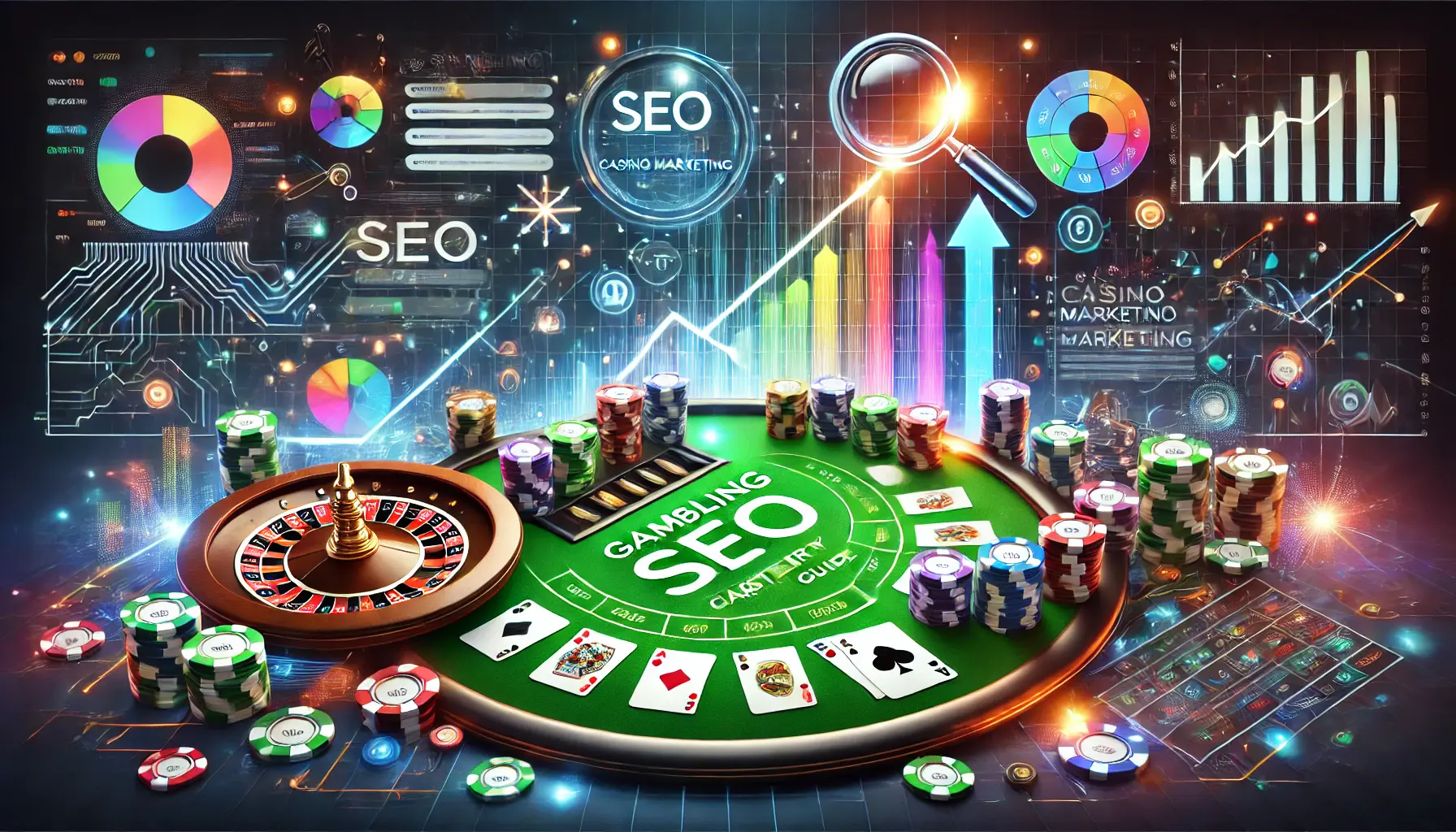Every year, someone declares SEO dead. Some do it loudly, with drama and predictions of doom. Others mention it in passing, simply noting that “SEO doesn’t work anymore”. These conversations started back in the early 2000s and haven’t stopped since. And every time, the predictions have seemed justified — new technologies, platforms, and changes in user behavior that appeared poised to finally bury search engine optimization for good.
Web 3.0, the explosive growth of Google Ads, the rise of social media, voice assistants, zero-click search results, TikTok as “the new search engine”, and now — ChatGPT, allegedly replacing Google for millions of users. Each of these trends was once seen as the beginning of the end. Why bother with SEO if there’s paid traffic? Why search on Google if everything’s shown in snippets? Why read websites when you can just ask AI?
But there’s one problem: SEO isn’t dead. In fact, it never went away.
According to data gathered by Jake Ward, founder of Contacts Studio:
- 15% of Google search queries are completely new and have never been seen before;
- the volume of search grows by about 10% every year;
- Google processes 8.5 billion searches every day;
- the SEO industry is valued at $100 billion and continues to grow.
Search engines evolve — and SEO evolves with them. User habits don’t change overnight. While some people are busy “burying” organic traffic, others are still making millions from it.
The truth is simple: SEO only “dies” for those who stop learning, adapting, and implementing new strategies. Everything else is just noise.
Who Has Already “Killed” SEO and How It Happened
If SEO really died every time someone predicted its end, the industry would have ceased to exist a long time ago. But not only has it survived, it has become one of the most stable and profitable sectors in digital marketing. Let’s recall who and how tried to “bury” SEO over the past 20 years.
Web 3.0 — A Decentralized Internet Without Google?
With the arrival of the Web 3.0 concept, many started talking about how centralized search engines like Google would become unnecessary. After all, if every user has their own “wallet” and direct access to data without intermediaries, why search for anything through a search engine?
In practice, Web 3.0 is far from widespread adoption, and the habit of searching via Google remains. Yes, blockchain technology is advancing, but a complete replacement of traditional search engines is still decades away, if not longer.
Google Ads — The End of Organic Traffic?
When Google began aggressively promoting paid ads in search results, it seemed like there would be no room left for organic results. Especially as the search results became more and more crowded with ads.
The reality is that most users still trust organic results more. People instinctively skip ads and look for answers “from people, for people”. This means that SEO continues to bring in steady traffic, especially in niches where users are searching for expert or emotionally charged answers (which is often the case in gambling).
Social Media — The New Search Ecosystem?
Facebook, Instagram, Twitter, TikTok — each of these platforms at some point claimed to be “the search engine of the future”. And indeed, people started searching for recommendations, opinions, and reviews there.
But social media hasn’t replaced Google. It has become an additional information channel. Yes, TikTok can suggest where to go on vacation or which slots are trending. But when it comes to specific actions — for example, finding a reliable casino or understanding how a particular strategy works — users return to search. Moreover, search engines are increasingly indexing content from social media, turning them into an additional layer of search results, rather than a competitor.
Voice Assistants and Zero-Click Results — The End of Traffic?
When Alexa, Siri, and Google Assistant were introduced, many assumed that people would just ask instead of searching. Additionally, Google began actively implementing snippets, quick answers, and other formats where users receive information directly in the search results, without clicking through to links.
Yes, part of the traffic is indeed “cut off” by these mechanisms. But the important point is that snippets and zero-click results don’t kill SEO; they simply change its rules. Now, you need to do more than just make it to the top — you need to make it into the “zero” spot, to be the answer that’s shown immediately. This isn’t a threat, it’s a new goal.
TikTok — The “New Google”
In 2022, the idea became popular that Gen Z doesn’t use Google at all — instead, they search on TikTok and Instagram. This is partly true — young people do search for recommendations, entertainment content, and “real opinions” there.
But TikTok is a stream. It doesn’t structure knowledge, provide depth, or offer comparisons. In gambling, where users are searching for trust, security, strategies, and real reviews — Google remains the primary source of information.
ChatGPT and AI — The Real Replacement for Google?
When OpenAI released ChatGPT, there was a lot of hype: “That’s it — Google is no longer needed”. Indeed, many began using chatbots for quick answers, especially in English-speaking markets. But there are a few caveats:
- People still check information via search.
- In money-related niches (like gambling), trust in AI-generated answers is still extremely limited.
- Most generative AIs still depend on indexed pages — meaning, content created according to SEO principles.
Why SEO is More Alive Than Ever: Numbers, Facts, and Trends
Despite all the attempts to predict SEO’s death, it not only continues to exist but is also evolving. The reasons for this are simple: the internet is growing, new search queries are emerging, and user habits don’t change as quickly as often assumed. Here are several key facts that prove the viability of SEO in 2025.
15% of New Search Queries — What Does This Mean for You?
Every day, a huge number of new queries are made in Google. According to Google, 15% of all search queries are entirely new, meaning they’ve never been searched for before. This means that search engines continue to create new opportunities for content, and SEO remains a relevant tool to capture them.
For gambling projects, this is particularly important. For instance, players may search for information about new slots, unique bonuses, or changes in legislation, and these will be search queries that were not anticipated by previous SEO strategies. If your site is prepared for these new queries and properly optimized for them, you can fill gaps in the market while your competitors haven’t yet noticed these changes.
Search Grows by 10% Every Year
One of the key factors confirming the increasing importance of SEO is the annual growth in search query volume. According to various sources, the overall volume of search queries grows by 10% every year. Even considering the rise of voice assistants and other technologies, this growth remains stable. People continue to search for more information, and this creates new opportunities for websites looking to attract organic traffic.
In the context of gambling, the growth in search queries can signify the appearance of new players in the market as well as increased interest in new products and services. For example, if new types of gambling games or bonus offers emerge in your niche, and you manage to optimize your content for this trend, it will help you capture a share of the growing market.
8.5 Billion Queries Per Day — SEO Still Brings Traffic
Google processes 8.5 billion search queries every day. This huge number shows how in-demand search engines are. Even with competition from social media, voice assistants, and other technologies, search engines continue to be the primary tool for finding information on the internet.
For businesses in gambling, this means that despite the growth of other channels, search engines remain the main source of traffic. And, importantly, users coming from search engines tend to have higher conversion rates, as they are actively seeking information and solutions to specific questions like gambling, betting, or finding reliable online casinos.
SEO — An Industry Worth Over $100 Billion
SEO remains one of the largest and fastest-growing sectors in digital marketing. Estimates say its value exceeds $100 billion, and this number continues to grow. Why does this matter for you as a business owner or marketer in gambling? Because the growth of this industry shows that SEO is not only surviving but thriving.
The more that is invested in SEO, the more opportunities arise for specialists, agencies, and brands. Moreover, SEO is becoming increasingly professionalized and technological, requiring specialized knowledge in algorithms, analytics, and content. This creates competition, but it also opens up new horizons for those who want to be at the top.
User Habits Change Slowly
One of the strongest reasons SEO remains alive is that user habits change very slowly. Despite the growing popularity of social media and new technologies, search engines still remain the primary tool for finding information. This is especially true in highly competitive niches like gambling, where users seek more specific answers and prefer trusted sources.
For example, if you are looking for information about licensed online casinos or strategies for playing poker, you are most likely going to search through a search engine. And this trend will continue because people still trust search engines when it comes to important information, especially in areas like finance and gambling.
How SEO is Evolving: Adapting to New Realities
AI and Search Algorithms
Artificial intelligence, as seen with Google’s SGE or ChatGPT, is having an increasing influence on SEO. Now, it’s not just about targeting keywords but also creating content that is perceived as useful and high-quality, not only by users but also by AI algorithms.
New Search Formats
Snippets and zero-click searches require SEO specialists to optimize content for new formats of search results. It’s crucial to aim for the “zero” position in order to gain visibility in search results, even if the user doesn’t click on the site.
Voice and Visual Search
Voice queries and visual search are becoming increasingly popular. To optimize a site for these formats, it’s necessary to consider conversational query styles and use visual content that will attract additional traffic.
User Experience and E-E-A-T
Google is increasingly evaluating content quality through E-E-A-T (Experience, Expertise, Authoritativeness, and Trustworthiness). For gambling websites, this is especially important — strengthening user trust and securing high rankings in search results.
Conclusion
SEO in 2025 is not just a set of standard strategies aimed at improving search rankings. It is a dynamic and evolving system that continuously adapts to new technologies and changes in user behavior. In this evolution, a key role is played by a business’s ability to respond promptly to challenges and leverage opportunities presented by new search formats, artificial intelligence, and other technological innovations.
For gambling websites, SEO holds particular significance. This niche, more than any other, relies on user trust. People want to be sure that the casino they choose to play at is safe, licensed, and offers fair terms. This requires high-quality content that answers user queries and is supported by expert opinions. SEO helps become that reliable source of information, attracting traffic and converting it into customers.
It is important to understand that SEO has not “died” — it has transformed. Those who stick to outdated methods or refuse to adapt to changes risk losing their competitive edge. However, those who continue learning, evolving, and implementing new approaches will remain on top.
The SEO industry, despite all predictions of its “death”, remains one of the most dynamic and profitable sectors in digital marketing. For those working in gambling, this opens up a wealth of opportunities. The key is not to fear change but to embrace it as a new stage of development where one can break ahead and secure leadership positions.
SEO is alive, and it will continue to exist as long as search engines remain important to users. Therefore, SEO is not only a current strategy but also a long-term tool for sustainable growth in the online gambling world. It is crucial to utilize all available tools for growth, as the ability to adapt is the key to success. In a rapidly changing world, SEO will remain the foundation for digital visibility and business success.

 Companies
Companies 





